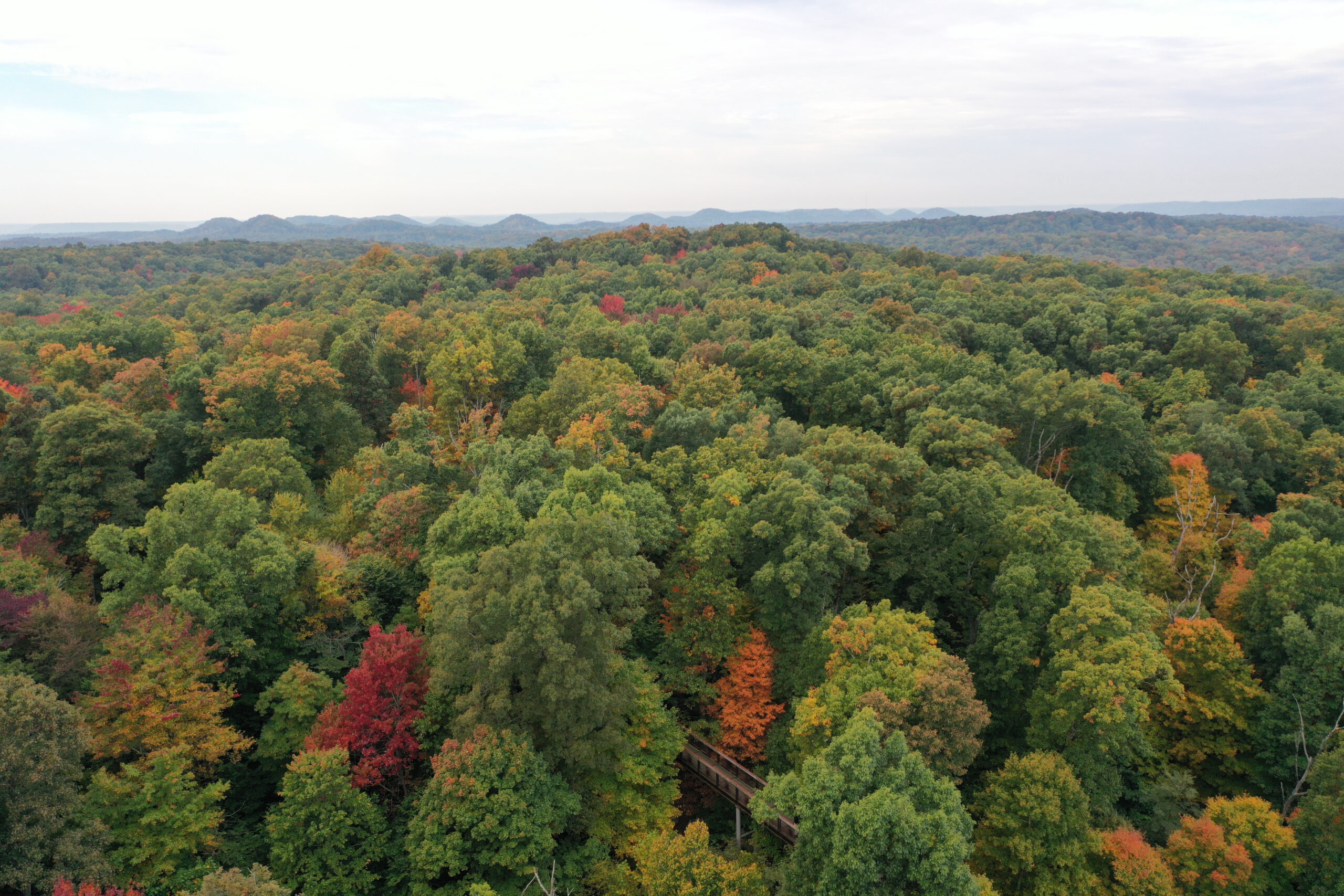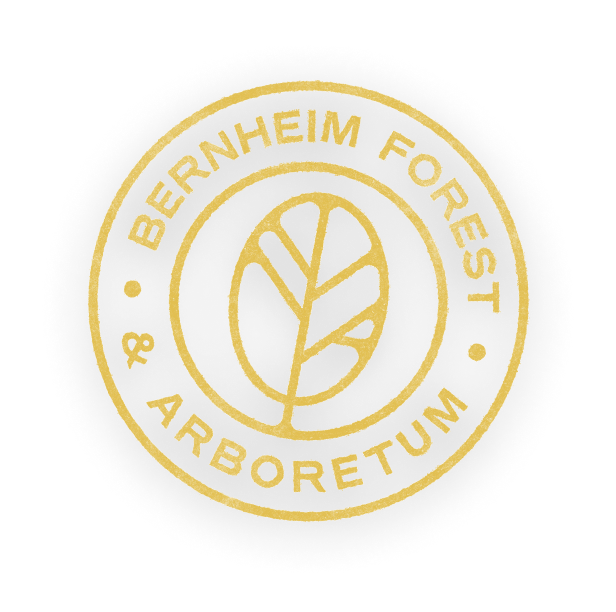We do not need to plan or devise a “world of the future”; if we take care of the world of the present, the future will have received full justice from us. A good future is implicit in the soils, forests, grasslands, marshes, deserts, mountains, rivers, lakes, and oceans that we have now, and in the good things of human culture that we have now; the only valid “futurology” available to us is to take care of those things. We have no need to contrive and dabble at “the future of the human race”; we have the same pressing need that we have always had – to love, care for, and teach our children.
—Wendell Berry
 On the day last spring when Bernheim’s Playcosystem nature playground opened, I came out with my 11-year-old and my niece and nephew, ages 8 and 7. We spent the better part of the hot and sunny day at Bernheim, not just at Playcosystem but also feeding the turtles in the Olmsted ponds, checking out the emergence of Jayson Fann’s Spirit Nest, and in general, absorbing the magic of the wonderland our founder left us.
On the day last spring when Bernheim’s Playcosystem nature playground opened, I came out with my 11-year-old and my niece and nephew, ages 8 and 7. We spent the better part of the hot and sunny day at Bernheim, not just at Playcosystem but also feeding the turtles in the Olmsted ponds, checking out the emergence of Jayson Fann’s Spirit Nest, and in general, absorbing the magic of the wonderland our founder left us.
My niece and nephew are the kind of sibling pair that couldn’t be more different. She’s a comet of energy with sometimes a bit of a fiery temper that gets her into trouble. He’s low-key and more comfortable with some complicated digital game or puzzle than, say, climbing a tree, and sometimes he gets scolded for not moving fast enough. By the end of our day, I noticed something striking. My normally subdued nephew was running wildly with all senses on high alert, taking in everything around him that was nature. He even eagerly grabbed the piece of shedded snakeskin I gave him, shouting, “I feel at home with snakes now!” On the other hand, my often temperamental niece was in a near meditative state, feeding turtles and geese and chatting politely and calmly with the adults who approached her. What happened?
Life is out of balance for so many kids. There’s too much time sitting inside and too many unreasonable expectations to stay quiet, keep up, or fall in line. And that balance can be hard to regain. Time spent on free exploration and play in nature can restore that equilibrium for kids as few other things can. Simply put, it gives back what our world of too much time spent in cars or buildings, in front of screens, and under adult control has taken away.
We take away a lot from kids when we don’t grant them enough time to commune with nature on their own terms. There’s an abundance of evidence to tell us kids need more time outside, whether that’s programmed time or unstructured exploration. Research tells us that we rob them of an opportunity to develop confidence and resilience, build their physical strength and coordination, calm their emotions and boost their social skills and executive function. And on top of that, we rob the world of its next generation of stewards because that early physical, mental and emotional bond with nature is pretty much how they get made.
What are the everyday actions we can take to ensure the children in our lives will love, respect, and nurture the natural world? There are many.
- Researchers at Cornell University, among other institutions, found that if children spend time in nature doing fun and healthy activities like hiking or camping with friends and family, they’re more likely to become adults who practice good stewardship. It’s that personal, tactile, multi-sensory connection and beloved memory that can only happen when a child is searching for creatures in a creek, climbing trees, collaborating with friends on building a fort, or otherwise being immersed in nature.
- As children grow older and are less likely to seek input from adults, having grownups in their lives who clearly demonstrate a love, curiosity, and sense of wonder towards the natural world still plays a critical role in forming their future relationship to nature. Engaging children in activities that show them they can contribute positive change to their environment is an unparalleled tool for building a sense of ownership and attachment. Some great examples are gardening, planting a tree, placing and maintaining bird feeders, growing food for themselves and someone else, identifying and tracking wildlife, planting for pollinators, or keeping bees.
- Creating storytelling experiences around nature is yet another recognized tool for building stewardship through the deep emotional connection that stories build in us. Our own Forest Giants and their personal tales have made Bernheim a living storybook for countless children. Children who will go on to see the forest as a place with lovable beings with names and stories.
Stories, play, free exploration, positive personal action, and good role models are all part of building that future Wendell Berry references. The future where we love, care for and teach our children to be besties with nature. Let’s go there together.


